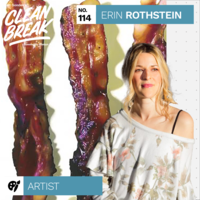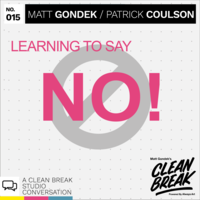When to say
no to a job
- by Always Art Staff


Just because you are eager to land a successful art career does not mean that you need to accept any project that comes your way. Jobs can include commercial projects, commissions, licensing agreements, gallery exhibitions, etc. When you are offered a job, there are things to consider to help you decide if you should accept it or not.
Here are the situations when you should turn down creative projects.
1. The project does not match your art vision & style
Staying authentic to your identity and vision as an artist is important for your inner peace, growth, and reputation. Deviating completely from your art style and genre is risky. Never accept work that you know you won’t be able to do well, as you want to only produce quality work. You do not want clients to micromanage you to achieve their desired output. Some clients even require you to change your usual medium. While exploring can be good, it should not be at the cost of your career.
2. It does not excite you
Taking projects that you are enthusiastic about pushes you to give them your best. They are the types of projects that will help you grow as an artist and move forward in accomplishing your artistic vision. This type of work will allow you to develop your techniques further and master your craft. The work that you take on should make you feel that you are proud to include it in your portfolio. When you are first starting out, you might not like every project you get, but it should at least align with your values and art career goals.
3. You do not like working with the people engaged in the project
You have a creative process, and you need the people you work with to respect that. If there is a client that wants a quick turnaround for something that you know cannot be done in time, then you should turn down that project. You do not want to add stress to your life or ruin your calendar for one project. Moreover, keep away from clients whose words do not match what they include in their contracts. For instance, they might say they care for your success, but you might find sections that go against that idea within the contract.
4. You do not have enough time
Never commit to a deadline if you know that you might miss it, it will only hurt your image as an artist. If you have other projects going on, you do not need to add another one that you are unsure you will complete. Plan your time well and estimate realistic completion dates, take into consideration your capabilities and circumstances. Some artists add a couple of days extra in case of emergencies and submit earlier than promised. Do not compromise the quality of your work to rush the process. Always do your best to maintain high quality standards in what you produce.
5. The pay is too low for the work required
You do not want to be in a situation where you are taken advantage of, putting all your time, efforts, skills, and energy into a project to get a low pay in return. This is particularly malicious when the client is aware of the regular cost of such work but decides to exploit you. It is ok to accept low paying projects in the beginning to build your portfolio, but do not make it a habit. Definitely do not take clients’ promises for future work as the reason you accept low pay. Do it only for the sake of learning if you are genuinely excited to be part of the project.






